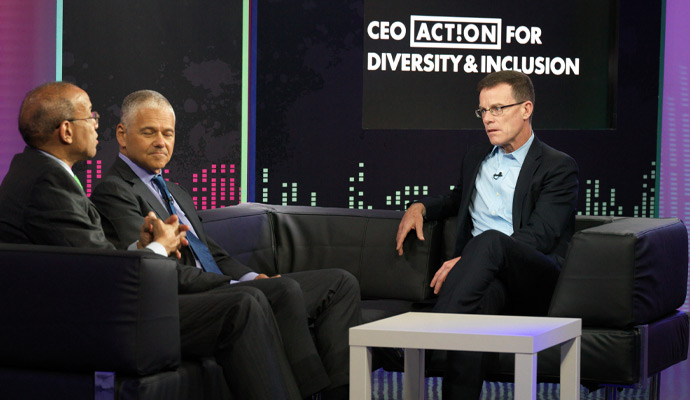A commencement speech for the #quietquitting era
The expectations that employers and employees have of each other have changed. So what should those starting their careers do to get ahead?

In my ongoing conversations with C-suite leaders, the question about what employers value in their new recruits often leads to a lively exchange. With more talk about what companies need to do to retain talent in a tight labor market, a list of employer expectations might seem like a blast from the past. But in the spirit of welcoming this year’s crop of graduates into the workforce, here is a commencement speech to the Class of 2023 that can act as a reminder of what it still takes to get a running start on making an impact at work.
First, congratulations on reaching this important milestone in your lives. It’s been a difficult few years. The pandemic made your college experience much different than what you hoped for or expected. But you persevered, and we are glad to be together today rather than gathering for a large and awkward Zoom call.
For all the downsides of the recent disruption, we must also remember that this is an incredibly exciting time to be entering the workforce. We are living through an era of breathtaking change. The playbooks that companies have used for the last few decades are being tossed aside, and some really big questions are now on the table. What is the future of work? What is the role of companies in society? What should employees expect from their employers, and vice versa?
No commencement speech would be complete without addressing a couple of lofty notions. So, I’d like to briefly touch on the topics of passion and purpose. Follow your passion may seem like good advice. But it’s really not that useful. It’s a good bet that many of you do not yet know what your passion is, and that’s OK. Instead of following your passion, you should focus on discovering your passion. And as for purpose, keep in mind this definition of corporate purpose from Colin Mayer, a business professor at Oxford University: “Producing profitable solutions from the problems of people and planet, and not profiting from creating problems.” That’s a pretty good yardstick for measuring which company to work for.
The next part is about what you can do to fulfill that purpose. And here’s my challenge for you today: how can you make the greatest impact within the hours you spend at work? If that question intrigues you, I’ll now share with you what your bosses want you to know as you begin your career.
• Do what you say you are going to do. If for some reason you can’t, let people know so there are no surprises. You want to be seen as reliable.
• Attention to detail matters. Fact-check your work. Check your spelling, grammar, and punctuation.
• If you are going to be on a virtual call, be on-screen as often as you can. When your video is off, the black square easily can be interpreted as disinterest.
• Be overly communicative. If someone sends you an email, acknowledge that you got it, and outline what the next steps are. Be clear on what you will do and when you will do it.
• Ask questions. Don’t think you have to know the answers. The world is vastly different now than it was before the pandemic. You won’t win points for pretending you know the answers—you’ll win them by showing interest in trying to help figure things out.
• It’s good to have boundaries. But if your employer is being flexible, then return the favor and occasionally respond to emails after hours and be willing to help on a time-sensitive project that requires extra work. The best relationships always include some give and take, and the relationship with your bosses is no different.
• Look for opportunities to apply some topspin to the ball. By that I mean, don’t just do what you are asked to do. Add value. Propose some other approaches. Present possible solutions—don’t simply point out problems.
• Make your team better. Look for opportunities to help your peers and your bosses. Your career path will be shaped in part by the plans you make, but it will also be shaped by the people who want to bring you along because you make them and others better.
• Every job is a mix of things you like to do and things you don’t like to do. It’s called work for a reason. But try to learn something from every task or challenge. See everything as an opportunity.
• Build structures and routines into your day. No one knows what hybrid work really means. Some managers are good at defining it, and some are not. In the end, don’t make others define this for you: you are your own best or worst manager.
Do what you say you are going to do. If for some reason you can’t, let people know so that there are no surprises. You want to be seen as reliable.
I realize that some of you may be thinking, “Well, aren’t those points obvious?” But I’ve spoken to many frustrated leaders, and trust me: they are not. If you act on my advice, I promise that you will set yourself apart and create a sharp trajectory in your career.
The workforce hashtag of 2022 was #quietquitting. I spent a lot of time talking to people much younger than me to better understand the concept, and what they told me is that quiet quitting is not really about quitting—it’s really about setting boundaries between work and the rest of life. I understand the impulse. Maybe people in my generation were too willing to put in extra hours and have their vacations disrupted. And now with so many of us working from home, it is too easy to blur the line between work and the rest of your life. Setting boundaries is a laudable idea, but it shouldn’t mean neglecting your work responsibilities.
There is an old expression about how some people live to work, while others work to live. There doesn’t have to be that dichotomy. Play hard when you play, but work hard when you are at work. Invest in your career. Make the most of your time. Set boundaries, but make what you do within those boundaries matter.




